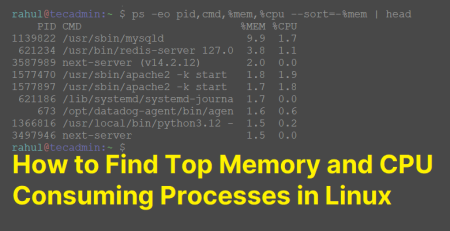An Orphan Process is a process that has lost its parent process, which normally takes care of cleaning up the process’s resources. In Unix/Linux, when a parent process terminates, its child processes become Orphan processes and are adopted by the init process, which becomes the new parent.
Here’s a step-by-step guide to understanding and handling Orphan processes in Unix/Linux:
Advertisement
- Identifying Orphan Processes: To identify Orphan processes, you can use the ps command and look for processes with a parent process ID (PPID) of 1, which is the init process. For example:
ps -eo pid,ppid,cmd | grep '^[ ]*[0-9]*[ ]*1' - Understanding the Causes: Orphan processes are caused when the parent process terminates before its child process. This can happen if the parent process is killed, terminates due to an error, or terminates due to a crash.
- Reaping Orphan Processes: To handle Orphan processes, the init process automatically reaps the child process and cleans up its resources. This means that you don’t need to take any action to handle Orphan processes, as they will automatically be taken care of by the init process.
- Avoiding Orphan Processes: To avoid Orphan processes, it is important to ensure that child processes are properly terminated before their parent process. This can be done by using the
wait()orwaitpid()function, or by using a signal handler to catch the SIGCHLD signal and terminate child processes when their parent terminates.
In conclusion, Orphan processes can occur when a parent process terminates before its child, but they are automatically handled by the init process and do not cause any stability issues. However, it is still important to avoid creating Orphan processes by properly terminating child processes before their parent.

